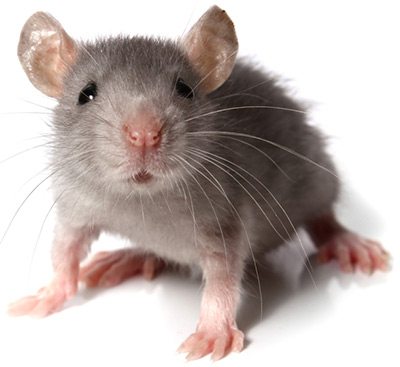
What Is the Most Effective Rodent Control?
August 1, 2024 6:21 pm Leave your thoughtsRodents are a common problem in many households and commercial properties. They cause structural damage and pose significant health risks. Rat infestations can lead to food contamination, spread of disease, and an overall decrease in quality of life. Therefore, understanding the most effective rodent control methods is essential for maintaining a safe and healthy environment.
Understanding the Problem
The Threat of Rodents
Rodents, particularly rats and mice, are notorious for their ability to adapt to various environments, making them a common pest in both urban and rural settings. They are known carriers of many diseases, such as Hantavirus, Salmonella, and Leptospirosis. Their gnawing habits can cause significant damage to electrical wiring, insulation, and other structural components of buildings, often leading to expensive repairs.
Signs of Infestation
Identifying the early signs of a rodent infestation is critical for effective control. Some of the common indicators include:
- Droppings: Small, dark, and pellet-like droppings found near food sources, in drawers, or along baseboards.
- Gnaw Marks: Chew marks on food packaging, wooden furniture, and electrical wiring.
- Nesting: Shredded paper, fabrics, and other materials used to create nests in hidden areas.
- Noises: Scurrying sounds in walls, ceilings, or under floors, especially at night.
- Odors: A strong, musky odor indicative of a large infestation.
Traditional Rodent Control Methods
Snap Traps
One of the oldest and most effective methods of controlling rodents is the use of snap traps. These traps are designed to kill rats instantly by snapping their necks when they attempt to take the bait. Snap traps are relatively inexpensive and reusable and have been proven effective over the years. However, their efficiency largely depends on proper placement and the right type of bait. Peanut butter, dried fruit, and bacon are often recommended as attractive baits.
Glue Boards
Glue boards are another traditional method for effectively capturing rodents. These traps utilize a sticky adhesive to trap the rat as it attempts to cross the board. Though less lethal than snap traps, glue boards immobilize the rodent, preventing it from escaping. However, they raise ethical concerns because the rodent often suffers a prolonged death. Additionally, glue boards are generally more suited for smaller rodent populations.
Live Traps
Live traps capture rats without killing them, allowing for release into an area far from human habitation. While they are a humane option, live traps require frequent monitoring and responsible relocation practices to ensure the problem does not simply shift to another area.
Advanced Rodent Control Methods
Electronic Traps
Electronic traps have gained popularity due to their effectiveness and humane approach to rodent control. These traps work by delivering a high-voltage shock that kills rats instantly, making them a quick and ethical solution. They often come with indicators to show when a rodent has been caught, reducing the need for constant checking. However, electronic traps are more expensive than traditional methods but are worth the investment for swift and humane rodent control.
Rodenticides
Rodenticides, commonly known as rat poison, are chemical solutions designed to kill rats instantly or within a short period after ingestion. They typically come in pellet or bait form and are highly effective for large infestations. The main drawback of using rodenticides is their potential risk to pets, wildlife, and even humans if not used correctly. Additionally, rodenticides can lead to secondary poisoning of predators that consume poisoned rats.
Ultrasonic Devices
Ultrasonic devices emit high-frequency sound waves that are uncomfortable for rodents, driving them away from the area. While there is some debate over their effectiveness, they have been found useful as a preventive measure rather than a solution for an existing infestation. However, these devices should not be relied upon solely for rodent control as effectiveness can vary based on the environment and the rodent species.
An Integrated Approach to Rodent Control
Inspection and Monitoring
Effective rodent control begins with a thorough inspection to identify the extent of the infestation and entry points. Monitoring is essential to determining the success of control efforts and making necessary adjustments. This can be done through visual inspections, the use of motion-activated cameras, or trap monitoring systems.
Sanitation and Exclusion
The cornerstone of any rodent control program is sanitation and exclusion. Keeping the environment clean, particularly food storage and disposal areas, reduces the attraction of rodents. Sealing entry points such as gaps around doors, windows, and pipes and repairing damaged screens or ventilation grilles prevents rodents from accessing buildings.
Professional Pest Control Services
While DIY methods can be effective for minor infestations, professional pest control services offer comprehensive solutions for severe rodent problems. Experts have the experience and tools to identify the root causes of the infestation and implement integrated pest management strategies. This includes setting and monitoring traps, using safe and effective rodenticides, and advising on preventive measures.
Choosing the Right Method
Cost-Effectiveness
The cost of rodent control methods varies significantly. Traditional traps are inexpensive and widely available but may be less effective for larger infestations. Advanced methods like electronic traps and professional services come at a higher initial cost but offer long-term effectiveness and peace of mind. The choice should be based on the severity of the infestation, budget, and ethical considerations.
Safety
Safety is a paramount concern when choosing a rodent control method. If not properly managed, snap traps and rodenticides pose risks to pets and children. Electronic traps and professional pest control services offer safer alternatives, minimizing the risk to non-target species and humans.
Humane Considerations
Many people prefer humane methods of rodent control that minimize animal suffering. Live traps and electronic traps are favored for their humane approach. While glue boards and rodenticides can be effective, they raise ethical concerns due to the prolonged suffering they can cause.
Contact Us Today
A combination of methods often yields the best results in the battle against rodent infestations. From traditional snap traps to advanced electronic devices and professional pest control services, each approach offers distinct advantages. However, the key to successful rodent control lies in early identification, continuous monitoring, and a commitment to maintaining a clean and secure environment.
Dealing with rodent infestations can be daunting and demands a thorough and professional approach for lasting results. Pied Piper Pest Control in Anchorage, AK, offers comprehensive wildlife, rodent, and pest control services designed to tackle even the most stubborn infestations. With our expertise and advanced control methods, you can rest assured that we will provide effective and humane solutions tailored to your needs.
Don’t let rodents compromise your health, safety, and peace of mind. Contact us today to schedule a thorough inspection and discover how we can help you achieve a rodent-free environment.
Categorised in: Rodent Control
This post was written by admin
